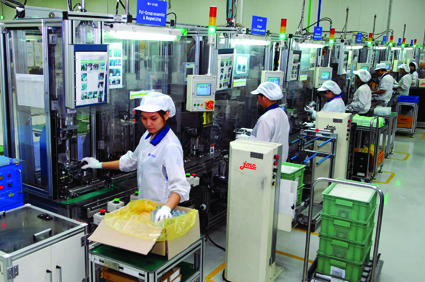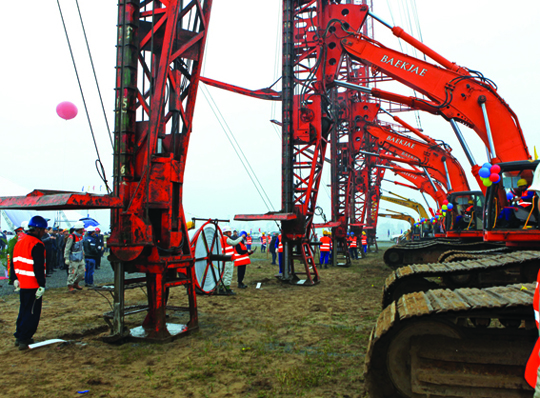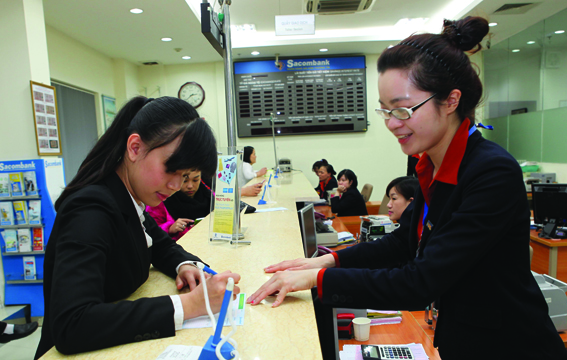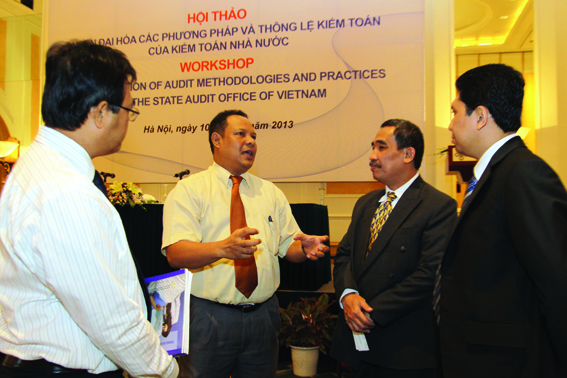Companies wishing to run a multi-level marketing (MLM) scheme must have legal capital of at least VND 10 billion.
This is provided in Government Decree No. 42/2014/ND-CP, which is designed to facilitate the development of MLM in the country while deterring those who want to use it for scamming and manipulating consumers.
The Decree was promulgated on May 14, and will take effect on July 1, superseding Decree No. 110/2005/ND-CP.
Stricter requirements on MLM firms
Under the Decree, an organization wishing to conduct MLM activities must file a written registration with competent agencies. The organization’s registration will be accepted only if it is an enterprise lawfully established in Vietnam and having registered to do retail business after the MLM model. After fulfilling registration procedures, the enterprise must deposit a collateral equaling five percent of its charter capital but not lower than VND 5 billion at a commercial bank in the locality where it is headquartered. The collateral will be used to offset financial obligations of the enterprise in case it has to close down.
According to the Decree, the responsibility to grant MLM registration certificates will rest on the Ministry of Industry and Trade, instead of provincial-level Departments of Industry and Trade as currently prescribed. This is expected to put an end to the current situation that requirements for MLM vary between different localities, thus enabling companies to make use of legal loopholes by applying for registration certificates in localities with little experiences in managing the business and later expand their operations to localities where stricter conditions are imposed.
An MLM registration certificate will be valid for five years after its issuance and may be extended for another five years. In case an MLM firm has no operations for 12 consecutive months after being granted a registration certificate, its certificate will be revoked. As explained by management agencies, this regulation aims to prevent businesses from applying for MLM registration certificates and then sell them to others.
In addition, a network marketing business will only be allowed to stop operations for a maximum duration of one year. Past this time limit, the business will have its registration certificate revoked. When suspending its operation, the business must comply with regulations on suspension of business activities in the law on enterprises and fulfill all obligations towards MLM participants. It must also notify its suspension to the Ministry of Industry and Trade and provincial-level Departments of Industry and Trade of localities where it conducts MLM activities and post up at its head office a suspension announcement for at least 30 working days after the suspension. Notification is also required upon resumption of business operations.
The Decree also requires MLM companies to notify the local trade and industry agencies of the time and venue of their workshops, conferences, and sales training sessions, as most MLM firms often take advantage of those events to expand their networks.
The Decree says MLM firms may not deal in medicines and medical equipment, veterinary drugs, plant protection drugs, pesticides and germicides for family and medical use, and hazardous chemicals and products containing hazardous chemicals, in addition to goods banned or restricted from trading or circulation.
More measures to protect MLM participants
In order to protect MLM participants, the Decree imposes a complete ban on pyramid selling.
In light of this, the Decree stipulates that MLM companies may neither require newcomers to deposit or pay a certain money amount or buy a certain quantity of goods or nor ask existing participants to pay extra money in order to maintain, develop or expand their networks.
The Decree says MLM firms may not adopt policies allowing MLM participants to receive commissions, bonuses or other economic benefits from inducing others to participate in their networks, refuse to pay commissions, bonuses or other economic benefits enjoyable by MLM participants without plausible reasons, or require MLM participants to sign-up new participants or extend contracts signed with participants at lower levels so as to enjoy commissions, bonuses or other economic benefits.
MLM businesses are also prohibited from providing false or misleading information on the benefits brought about by participating in MLM networks, on the properties and uses of goods or on their operations so as to induce people to join their networks. In addition, they must commit to take back unsold goods and refund MLM salespersons money amounts already paid for these goods.
The Decree also bans MLM companies from signing more than one contract or granting more than one business identification code to a MLM participant. Besides, the sale, purchase and transfer of MLM networks are prohibited, except cases of acquisition, consolidation or merger of MLM enterprises.
As for MLM participants, the Decree allows overseas Vietnamese and foreigners with work permits to participate in MLM networks in Vietnam. However, all MLM salespersons must attend training courses and may practice MLM only after obtaining a member card. In addition, MLM salespersons are not allowed to organize consumer meetings or product introduction seminars without written authorization of MLM companies or abuse their positions and powers to request others to participate in MLM networks or buy goods.
According to statistics released by the Ministry of Industry and Trade, by the end of 2013, the number of MLM firms in Vietnam had mounted to 102 with the participation of 1.2 million people, a relatively high figure compared to the national population of 90 million. Most MLM companies operating in the country are established through cooperation with foreign partners and take the form of domestic enterprises, joint ventures or wholly foreign owned companies. A majority of these firms are producers and traders of functional food, cosmetic and home appliances. Although the MLM business model is familiar in other countries, it remains a relatively new business in Vietnam.-




